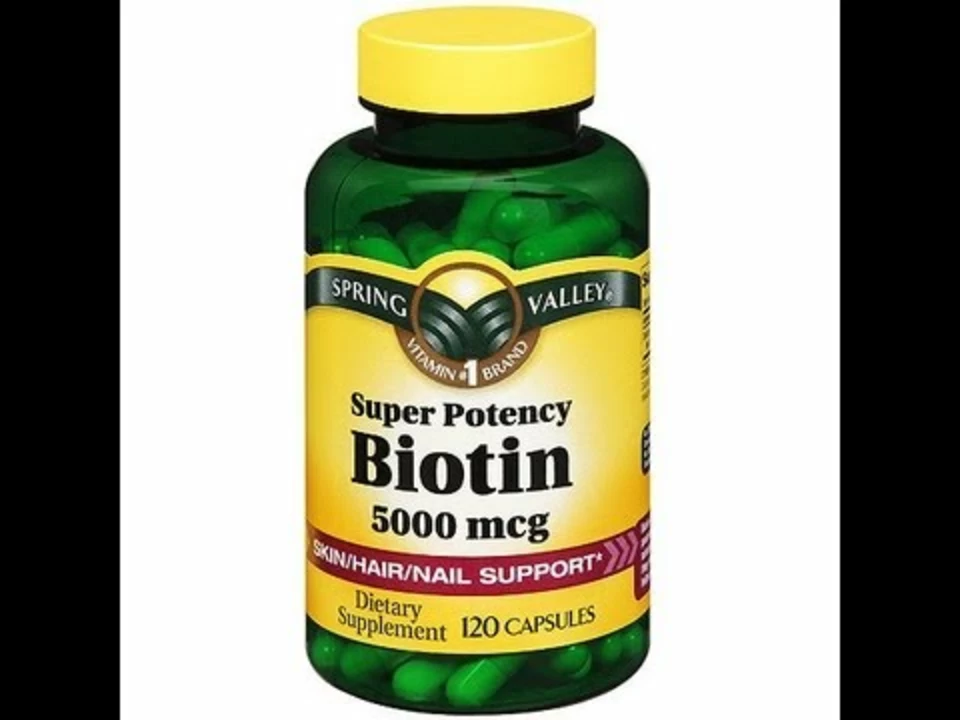Biotin (Vitamin B7): What It Does and How to Use It
Biotin is a B vitamin often sold to help hair, skin, and nails. You’ve probably seen big supplement bottles promising thicker hair. The truth: biotin is essential for metabolism and cell growth, but most people already get enough from food. Still, supplements can help in specific cases — and there are things you should know before popping a high-dose pill.
What biotin does: it helps your body turn carbs, fats, and proteins into energy and supports healthy skin and hair cells. Signs of a true biotin deficiency include thinning hair, brittle nails, skin rashes, and in severe cases, neurological symptoms. Deficiency is rare in people eating a balanced diet, but it can happen with certain conditions or medications.
How much biotin should you take?
Health agencies set an adequate intake of about 30 mcg per day for adults — the amount found in a normal diet. Foods rich in biotin include egg yolks, liver, nuts (almonds, peanuts), legumes, and whole grains. For hair and nail support, many over-the-counter supplements advertise doses from 2,500 mcg (2.5 mg) up to 10,000 mcg (10 mg). Clinical use for diagnosed deficiency often uses higher doses — commonly around 5 mg (5,000 mcg) daily under doctor supervision.
If you’re considering biotin for hair or nails, know that evidence is mixed. Some small studies show improvement in brittle nails or hair growth at higher doses, but results vary and benefits aren’t guaranteed. If you decide to try it, a common approach is to test a moderate dose (2,500–5,000 mcg) for a few months and watch for changes.
Safety, interactions, and lab-test warnings
Biotin is generally safe at typical supplement doses, with few side effects. A few people report acne breakouts when taking high doses. More importantly, high biotin intakes can disrupt blood tests. Biotin can interfere with certain immunoassays used to measure thyroid hormones and cardiac markers like troponin, causing falsely high or low results. If you have blood work scheduled, tell your provider about biotin use — many labs recommend stopping biotin 48–72 hours before testing.
Certain medications can lower biotin levels. Long-term use of some anticonvulsants (like carbamazepine or phenytoin) or broad-spectrum antibiotics may affect biotin status. If you’re on prescription meds, check with your clinician before starting supplements. Pregnant and breastfeeding people should consult their doctor; prenatal vitamins usually include adequate biotin amounts.
Choosing a supplement: pick a reputable brand, check the label for dose and form (D-biotin is common), and avoid unnecessary mega-doses unless your doctor recommends them. If you’re aiming to improve nails or hair, give any trial at least three months before judging results — hair growth takes time.
Questions about biotin and your specific health? Reach out to your healthcare provider or use resources at PillPack Supplies to find reliable info on supplements and meds. Small, informed steps beat trendy fixes every time.





